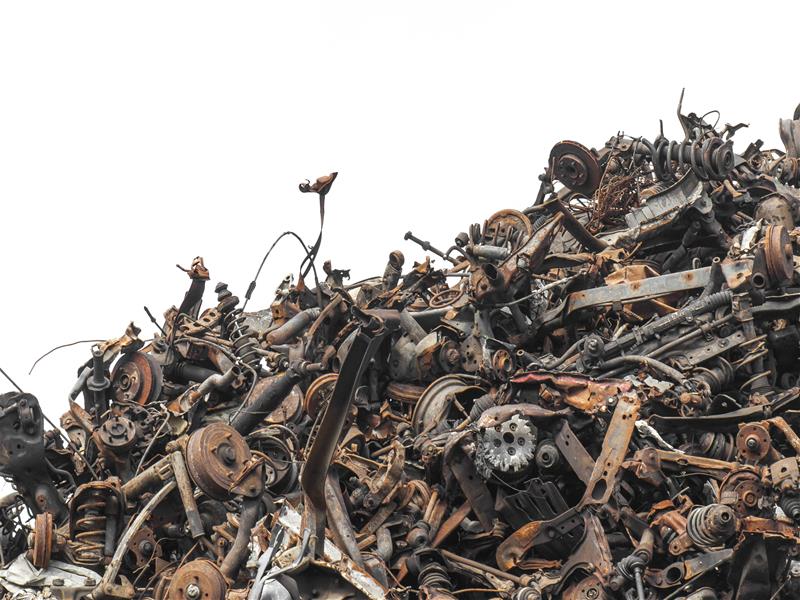Vehicle scrappage policy - Upgrading your car just became more attractive
Vehicle scrappage policy - Upgrading your car just became more attractive
Published on August 11, 2021. EST READ TIME: 2 minutes

Like every other machine, vehicles come with a certain lifespan, and they also experience wear and tear over time. As days go by, vehicles become too uneconomical to run because of reasons like diminishing availability of spare parts, advancements in automotive technologies, stricter fuel norms, and in the odd case, vehicles getting too banged up to be used any more. Which means, getting a new vehicle becomes essential. And the recent vehicle scrappage policy introduced by the government of India makes it more sensible and profitable for you to buy a new vehicle rather than stick with an old one. To know all about it, read on.
Key highlights of vehicle scrappage policy
- Integrated vehicle scrapping centres will be set up to ensure proper scrapping of vehicles while meeting all environmental and local rules.
- Upon failure of the vehicle fitness test, the concerned vehicle will have to be scrapped.
- Scrap value will be provided around 4-6% of the new vehicle’s ex-showroom price. Further rebates will be available up to 25% on road tax.
- New vehicle registration fees may also be waived upon presenting a vehicle scrapping certificate. This will leave buyers with more money to get the best car insurance in India for the new car.
Categories under vehicle scrappage policy
- All government-owned vehicles, right from central government to village panchayat level, may be scrapped after 15 years of usage. This excludes defence mobility and warfighting vehicles.
- All commercial vehicles that are more than 15 years old may be scrapped if they fail a fitness test. The test fee has also been increased.
- All private vehicles more than 20 years old may be scrapped if they fail a fitness test. The fitness test fee has also been increased.
Vintage vehicles
As per government policy, vehicles that are vintage (more than 50 years old) are exempt from the policy. Government will form bodies to decide which vehicles are vintage though, and such vehicles can only be used for research, demonstrative and exhibition purposes. Vintage vehicles will be registered for 10 years at a time and state governments will have to be informed upon sale or purchase of such a vehicle.
Compulsory scrapping of old vehicles
As per government rules, special fitness norms will be enforced for ensuring that the re-registration process of old vehicles is not abused. Re-registration fee will be increased, and vehicles will have to be fitness tested. Thus, while government vehicles will be compulsorily scrapped, private vehicles will only be allowed to be retained after a costly and time-consuming process, making scrapping a much more attractive option.
Green Tax, Re-registration and Fitness Tests for Vehicles
The government is planning to impose a green tax on older vehicles to compensate for the pollution they cause. These taxes are to be used for researching and promoting cleaner mobility solutions. Older vehicles will have to be re-registered in shorter gaps and such registration will only be done after the vehicle has cleared newer and stricter norms for safety and emissions.
Costs to rise for owning old vehicles
With the introduction of vehicle scrappage policy, the cost of fitness testing of old vehicles will increase by a significant margin. Add to this, factors like rising fuel costs when vehicles get less and less fuel efficient as they get on in age. Moreover, buying their spare parts becomes more and more expensive and the labour costs for their maintenance shoot up too. Since cheaper alternatives are available in the market, owning old vehicles will not make any economic sense.
Benefits of the Vehicle Scrappage Policy
- The new scrappage policy will help reduce pollution and carbon emissions by taking off older vehicles from the road and putting newer, less polluting vehicles on the road. Mandatory scrappage will motivate people to buy clean fuel vehicles like electric cars.
- It will improve overall road safety levels because newer vehicles are compliant with stricter crash test standards and are safer for drivers and pedestrians.
- Thanks to increasing demand for new vehicles, the automotive and motor insurance sector will be able to contribute more to the overall economy, since more and more people will choose new cars and the best car insurance in India.
- Improved fuel efficiency of new vehicles means less oil imports and saving of foreign exchange.
All in all, buying a shiny new car has never been a more attractive proposition. The latest vehicle scrappage policy is the perfect push you need if you have been thinking of upgrading your old vehicle for some time.
Disclaimer: The above information is for illustrative purpose only. For more details, please refer to policy wordings and prospectus before concluding the sales.
Related Articles
- Should you buy a second-hand car instead of a new car?
- Five Things to Consider Before Buying a New Car in India
- Insurance tips for buying or selling a used car










 Health Insurance
Health Insurance  Travel Insurance
Travel Insurance  Car Insurance
Car Insurance  Cyber Insurance
Cyber Insurance  Critical Illness Insurance
Critical Illness Insurance
 Pet Insurance
Pet Insurance
 Bike/Two Wheeler Insurance
Bike/Two Wheeler Insurance  Home Insurance
Home Insurance  Third Party Vehicle Ins.
Third Party Vehicle Ins.  Tractor Insurance
Tractor Insurance  Goods Carrying Vehicle Ins.
Goods Carrying Vehicle Ins.  Passenger Carrying Vehicle Ins.
Passenger Carrying Vehicle Ins.  Compulsory Personal Accident Insurance
Compulsory Personal Accident Insurance  Travel Insurance
Travel Insurance  Rural
Rural 











